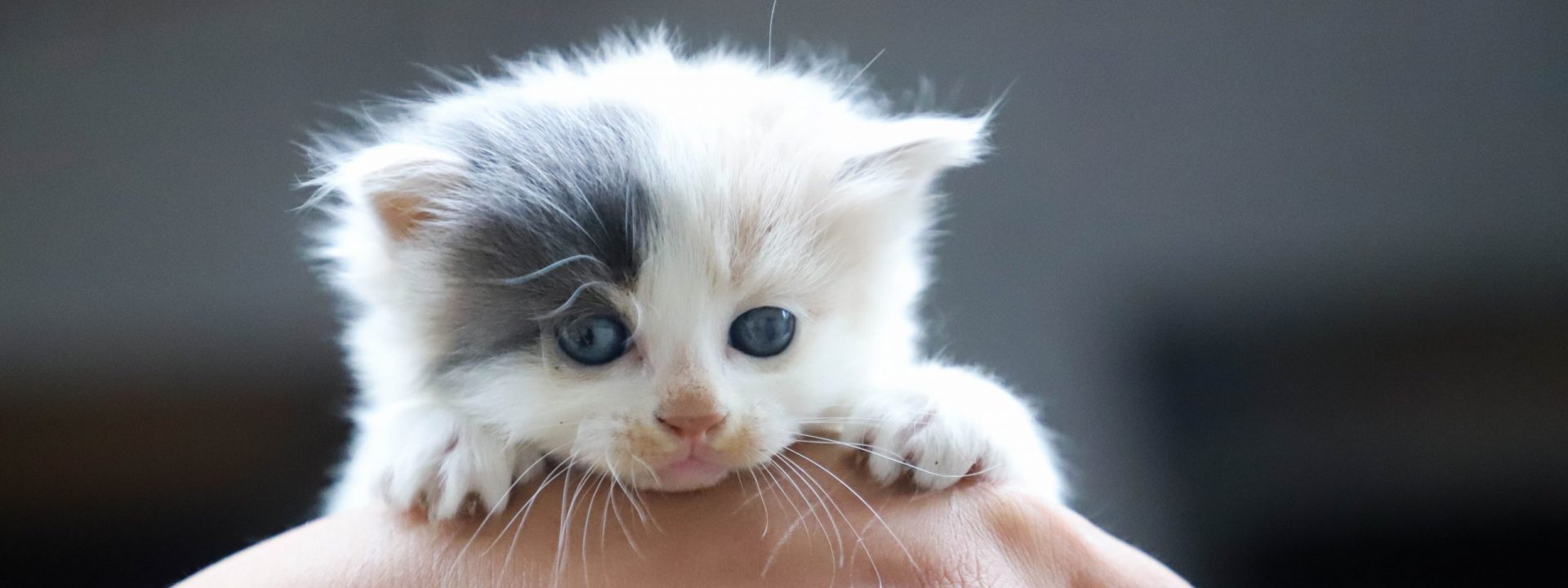Shall I pay a large amount for a purebred cat, or maybe take a “poor chap” from the animal shelter? Opinions are divided. People who decide to buy an expensive purebred are often slandered by the supporters of mixed-breed cats. Following the slogan “Do not buy! Adopt!” they have single, indisputable principle that only homeless cats’ adoptions do count, and if you do not give one of them a home, then you are not a true cat lover!
The campaign to encourage the adoption of shelter cats is very positive and necessary. However, nothing is black and white and, as always, everything has its pros and cons.
A cat from a shelter
Adopting one of the many, many homeless cats is a noble gesture. You help one of those poor shelter residents find a warm home, a full bowl and get their own human for life. It’s like giving your pet a new life that suddenly makes 180 degrees change. You will also feel great because you did something good and the shelter gains space for another homeless furry creature. They are often adult cats with well-developed character, temperament and inclinations. If you specify what kind of cat we are looking for, shelter staff will certainly help you find the one with the right character. Sometimes there are kittens for adoption, especially in spring, when homeless, non-castrated cats give birth to new litters.
The downside of taking a cat from a shelter is often the baggage of their life experiences. In most cases, we do not know the past of a given cat, we do not know what trauma they have, how they will behave in stressful situations and by what exactly these situations will be triggered. Perhaps you will have to deal with bothersome behavioural disorders, and your patience may be put to a severe test. Generally, kittens have not experienced too many unpleasant events, but in some cases they can take over the tendency to be extremely skittish from their parents, and fear can trigger a lot of undesirable behaviours. You can never be sure what will grow out of such a kitten – we can, for example, come across an inborn “savage” who would never like to sit on your lap. It must be admitted, however, that the strongly mixed genes of moggies do not accumulate diseases to which purebred cats are prone. The above disadvantages are not the rule, of course, but you should consider the possibility of such difficulties.
Cat from certified breeders
Predictability is the biggest advantage of purebred cats. It is known what they will look like, what size they will be and what character to expect from them. From the day of birth, the breeder takes care of them, properly socializes them and they are under the constant care of a veterinarian. They will come to you as neutered, vaccinated, dewormed and well-behaved animals. If you have children at home, you can adopt a breed that likes them and shows a lot of patience. If you want a crazy, energetic kitten, you can choose a breed that loves to run, jump and needs a lot of activity.
A basic principle when adopting a purebred cat is to choose an appropriate, registered breeding facility. It gives you the guarantee that the animal will meet your expectations. I remember a person asking if it was normal for her Maine Coon to weigh around 3 kg at the age of two years. After examining the cat, it turned out that, indeed, the cat is long-haired and very shaggy, but it does not have features of appearance typical of Maine Coons, such as brushes on the ears or a hairy “collar” under the chin. The grow of the above-mentioned cat stopped at just over 3 kg (while Maine Coon cats weigh around 10 kg on average). Such surprises usually result from the fact that genetic purity is not monitored and documented, and non-characteristic features could have been inherited even from a cat’s great-grandfather who had one non-purebred parent. That is why proper documentation up to 5 generations back in the pedigree is so important. This ensures that your purebred cat is truly purebred and that any diseases to which the breed is prone are suppressed. By choosing a kitten from a proven, legal breeding, registered in renown associations, you also do not support profit-focused pseudo-breeding, where caring for kittens often leaves something to be desired.
The downside of purebred cats is high price you need to pay for a kitten and increased risk of diseases specific to the breed, but with this choice you will not encounter any surprises when your pet grows up.
Finally, it must be emphasized that, regardless of their origin, each cat will need the same care and love. No cat is inferior or superior. Also, do not judge the carers through the lens of what cat they chose, but instead pay attention to whether they take good care of their pets, because this is what really tells you whether someone is a true friend of animals.

